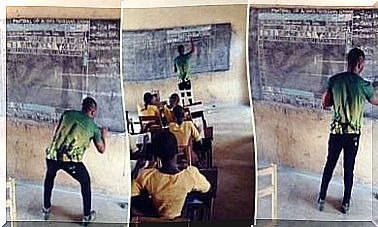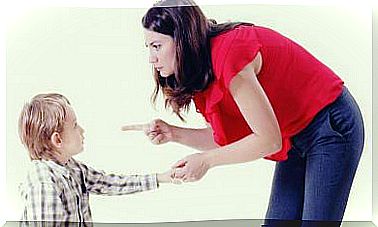The Power Of The Group, A Dangerous Place To Leave Responsibility Forgotten

We all have a reference group with which we share hobbies, work …, in fact, it is essential to realize ourselves as people. The power of the group gives us security, strength and helps us feel comfortable with ourselves. However, it also conditions. How many times have we not been sure of doing something, but we have ended up succumbing to inertia and have consoled ourselves by repeating that others acted the same?
The group guides our thoughts and our behavior. Within secondary socialization, it is one of the most important elements in learning social norms. The group helps us to face adversity, but it is also the shield with which we protect ourselves from the evil we do. The problem comes here, when we justify our actions because “others did it too” .
The group and identity
From the moment we are born we are already part of a community: society. We are members of a community that integrates many people. However, when we grow up we do not identify the whole of society as our group, but we see ourselves as just another individual. For this reason, we dedicate a large part of our lives to looking for a reference, someone with whom we feel comfortable.
Within our personal and moral development, the group shapes our identity and in adolescence this becomes very important. Parents are no longer our guides and are relegated to the background. We look for other sources of knowledge and it will be in the peer group where we end up consolidating our personality.

The power of the group and deindividualization
Linking with what we have said previously, the individual identity is transformed into a group identity. We do not see ourselves as a single subject with our own conscience, but as an integral part of several groups. That is, we lose part of our self-awareness and we get carried away, at times, by what the rest does. A result of group power.
This is already an inconvenience in itself, since we delegate the criteria and responsibility for our actions to others. However, this problem is multiplied when the acts are antisocial and do not conform to community norms.
Deindividualization arises as a loss of that self-awareness in which the individual evades his identity as his own subject. Responsibility, therefore, is not related to the acts we do as individuals, but as members of the group to which we belong.
To understand each other: we distribute responsibility among all members. “I have acted badly, but the rest have done the same as me.” In this way, the action is devalued and is seen as less offensive, since the consequences generated have not been only by us, but more people have participated.
This phenomenon increases when, in addition to going in a group, we are covered. Physical anonymity makes our recognition difficult, remaining in a state of invisibility in the face of the world. The responsibility, therefore, is also diluted and it costs us more to feel guilty for what has been done. After all, nobody knows who we are.
The power of the situation
The power of the situation is the first principle to explain behavior modification, regardless of the individual’s thoughts. The context in which we find ourselves will guide our way of behaving.
A fairly representative example is the experiment carried out by Asch. In it, he exposed a group of people to a test in which they had to give the answer that they considered correct as a solution to a problem. In the experiment, several of the members were “in cahoots” and had to give an obviously incorrect answer in the eyes of the rest. A high percentage of the subjects who were part of the research, and were not “in league”, indicated the wrong answer … despite the fact that, if they had not known the answer of the others, they would have chosen another.

This shows that we care what others think of us and we adapt our behavior to group desirability. We act according to what we believe the rest of our peers expect of us. Many of the people who responded were convinced that the answer they were giving was not the correct one, but they preferred to be wrong and be “accepted” than to be correct.
The group is part of us, it modifies us and we influence it: we share interests, improve our ability to relate, etc. However, group pressure sometimes dilutes the perception of the evil that we do. The philosophy that emerges is simple: “if one falls, we all fall.”









